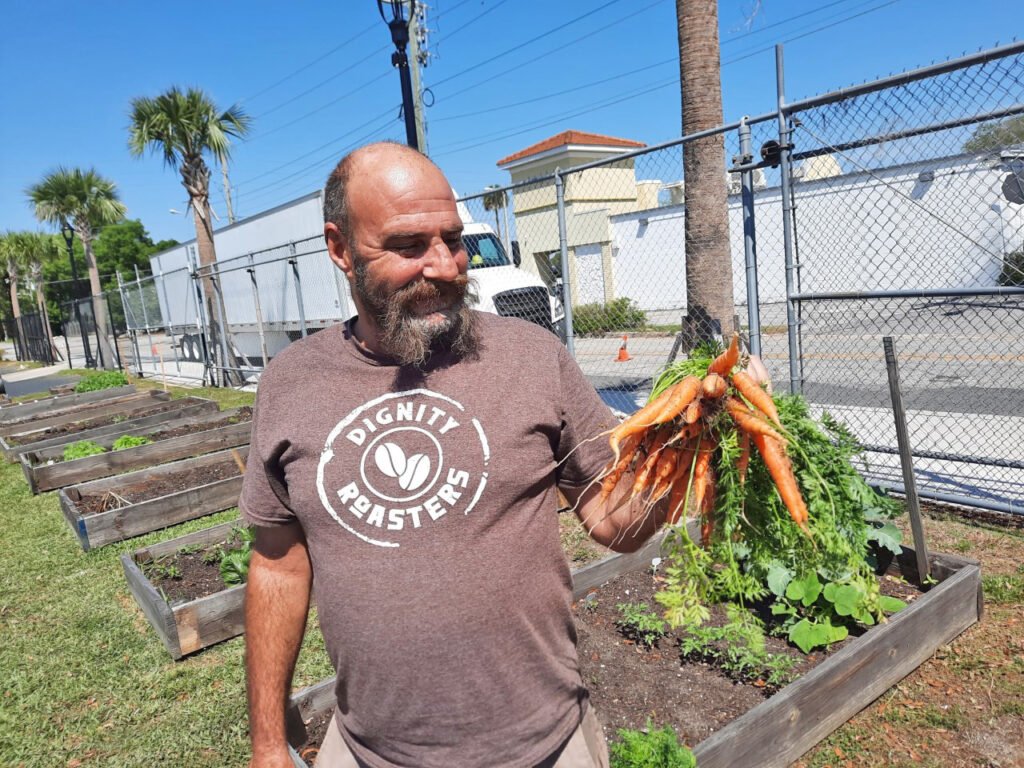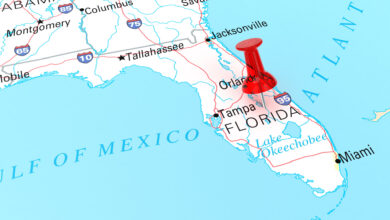“If somebody’s willing to work to get the help they need, we’re going to invest in them.”

Twelve years ago, Ken Kebrdle and his wife Wendy embarked on a search for answers to puzzling questions about the nature of homeless people. Always one to give when a person in need had a hand out, Kebrdle believed there must be more to helping homeless people than simply tossing them your loose change and bills.
Their four-year journey, accompanied by their 12-year-old daughter, gave them the answers they were looking for and it inspired them to start Wear Gloves, a charity focused on providing homeless people with the opportunity to prove their value in the work force and progress into lives as productive citizens. One of the organization’s mottos states that it is “dedicated to helping those in need earn what they need.”
On his trek around the country, Kebrdle learned first-hand the results of well-intentioned, but pitfall-ridden solutions that are the norm in charitable society.
“A lot of the stuff we were doing to help folks was more damaging than helpful,” Kebrdle said. “We learned a lot about the unintended consequences of our giving.”
Ken and his family abandoned their old, orthodox lifestyle by quitting their jobs, leaving their house and moving into a van to travel around the country. Along the way, they befriended many homeless people and saw first-hand the lives of those in need. What they discovered completely changed their perspective on giving.
“We were immersed in poverty and learned a lot about it,” Kebrdle said. “We learned about panhandling, we spent time in homeless camps, worked with human trafficking victims, prostitution ministries and just learned the other side of it.”
What they learned was that panhandlers shared information and tips on how to make the most money in the least amount of time.
“They talk about the benefits of certain types of signs in certain areas: ‘Homeless Veteran, Hungry, Please Help,’” Kebrdle explained. “The thing is, in Ocala there are no homeless veterans and there’re no hungry homeless people in Ocala. They can earn all they need panhandling four hours a week… to take care of their immediate needs.”
Kebrdle said that between the numerous homeless shelters and food banks located in the city, there is no reason to go without a meal or sleep under the stars; yet, panhandling abounds.
“Right now in Ocala, there are a multitude of jobs and multitude of opportunities, but many of them that are able to work are choosing not to because of the ease of panhandling,” Kebrdle said. “We really want to try to stop that. We don’t want to make it easy for someone to stay in a tent on the street; we want them to move forward, and they often do once we allow them to start earning it and they feel their value again.”
Wear Gloves helps these people in need re-gain whatever work ethic had been lost by providing jobs that require punctuality and effort. After showing they can be reliable in the work force, they are sent off with job references and newfound confidence.
Some of the initiatives provided by Wear Gloves include contracts with ClosetMaid, Trinity Tile and the City of Ocala. The companies drop off product for Wear Gloves clients who engage in parts-assembly and the like, and they are paid for their services. With the city, Wear Gloves clients participate in litter pick-up.
One of the latest initiatives that is having a tremendous impact is Dignity Roasters Coffee, in which clients are trained in the skill of coffee roasting. Clients grind, roast, bag and even ship coffee to customers. Kebrdle says that over 350 customers exist nationwide that receive one bag per week or month. Locally, he claims 20 churches and 18 businesses purchase coffee from Dignity Roasters for their break rooms.
It’s all part of getting people accustomed to seeing value in themselves, that they can actually earn their keep in society. At Wear Gloves, traits that employers demand are what become drilled into clients.
“So often, clients that are going through (substance addictions), might be going in the right direction and then they will fail,” Kebrdle said. “If they were working for someone else, they would be terminated and not go back. We deal with it and work them back in the program and there’s often several times they will fail before they are able to move forward.
“Once we are clear in our mind that somebody has got a handle on that, we provide a reference for other employers.”
Therein lies one of the greatest hurdles, according to Kebrdle, who says that most employers simply do not want to take a chance on hiring a ex-felons or people who live in tents. He says that his organization takes these people who are unemployable and helps them become employable.
It’s all part of trying to change a way of charitable thinking that seems to perpetuate the existing problem by merely subsidizing it.
“Most towns we worked in, every time a church or a business or a person wanted to help homeless folks, they would start a feeding line,” Kebrdle explained. “Right now, in Ocala there’s seven meals a day available for homeless folks. It’s difficult to get someone to work when they can stay some place for free, get meals for free, get free phone, get free medical care and can earn all they need by panhandling four hours a week.”
Wear Gloves has just over 100 clients, all making the effort to get off the street and into a productive job. Kebrdle estimates that at least 70 percent of people who have gone through the Wear Gloves initiatives have made a dignified transition from the street to the workforce.
“If somebody’s willing to work to get the help they need, we’re going to invest in them,” Kebrdle said.
As a 501c3 non-profit, Wear Gloves relies on the volunteers and monetary donations from the community to help sustain their noble efforts. By visiting weargloves.org, one is able to make a donation and learn more details about the organization’s initiatives.






